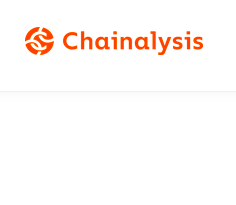
In a new blog post by chain analysis , it emphasis the need to bring about transparency which is key to building trust in crypto as an emerging financial tool through offering for free two sanctions screening tools – an on-chain oracle available today and an API expected to launch next month – for the cryptocurrency industry.As countries around the world continue to leverage economic sanctions in response to Russia’s invasion of Ukraine, decentralized web3 groups like DEXs, DeFi platforms, DAOs, and DApp developers are searching for lightweight tools to help them and their customers comply with sanctions policies. These tools will enable users to easily validate they are not interacting with cryptocurrency wallets associated with sanctioned entities.
Given the transparency of blockchains, it would be difficult for the Russian government or financial elite to systematically evade sanctions at scale through cryptocurrency without detection. However, as with the traditional financial system, some sanctioned Russian actors may attempt to use cryptocurrency as a means to evade sanctions. All of these transactions would be permanently recorded on the blockchain, providing opportunities to identify and shut down sanctions evasion tactics. As we’ve seen with sanctions impositions in the past, cryptocurrency compliance professionals with the right data and technology are effective at identifying transactions by sanctioned entities and taking action.
“Now is the time for the industry to demonstrate that blockchains’ inherent transparency make cryptocurrency a powerful deterrent to sanctions evasion,” said Michael Gronager, Co-Founder and CEO, Chainalysis. “In anticipation of ongoing sanctions, we’ve prioritized the development of these tools so that all cryptocurrency market participants have what they need to harness this transparency and conduct basic sanctions screening at no cost to them.”
To comply with AML/CFT regulations and sanctions policies globally, most centralized exchanges use transaction monitoring products like Chainalysis KYT, which provides much more extensive data and capabilities. However, many decentralized protocols and platforms that have more recently grown in popularity do not incorporate tools that allow for effective management of sanctions risk. These new Chainalysis offerings will provide an easy way to conduct basic sanctions checks to help manage reputational and sanctions enforcement risk.
“Until now, we haven’t been able to find an easy way to monitor sanctions risk,” said Corbin Page, Founder of Paymagic. “There were no data sources. Chainalysis’ tools will give us the information we need and peace of mind to focus on building our products while preventing exposure to sanctioned entities. This is more important than ever in today’s Web3 world.”
The Chainalysis oracle and API will provide any cryptocurrency business, protocol, or organization a simple way to quickly check if an address is on a sanctions list before allowing it to connect with their service. Each will use the same data to confirm whether or not the address is on economic/trade embargo lists, such as those of the US, EU, or UN, with which anyone subject to those jurisdictions is prohibited from dealing. The Chainalysis oracle is a smart contract that can be called from other smart contracts to validate a wallet before allowing an interaction with the second contract.
The Chainalysis oracle is available now, click here to learn more. While we anticipate the API will become available in April, this is still to be determined. To express interest in the APl, click here.
